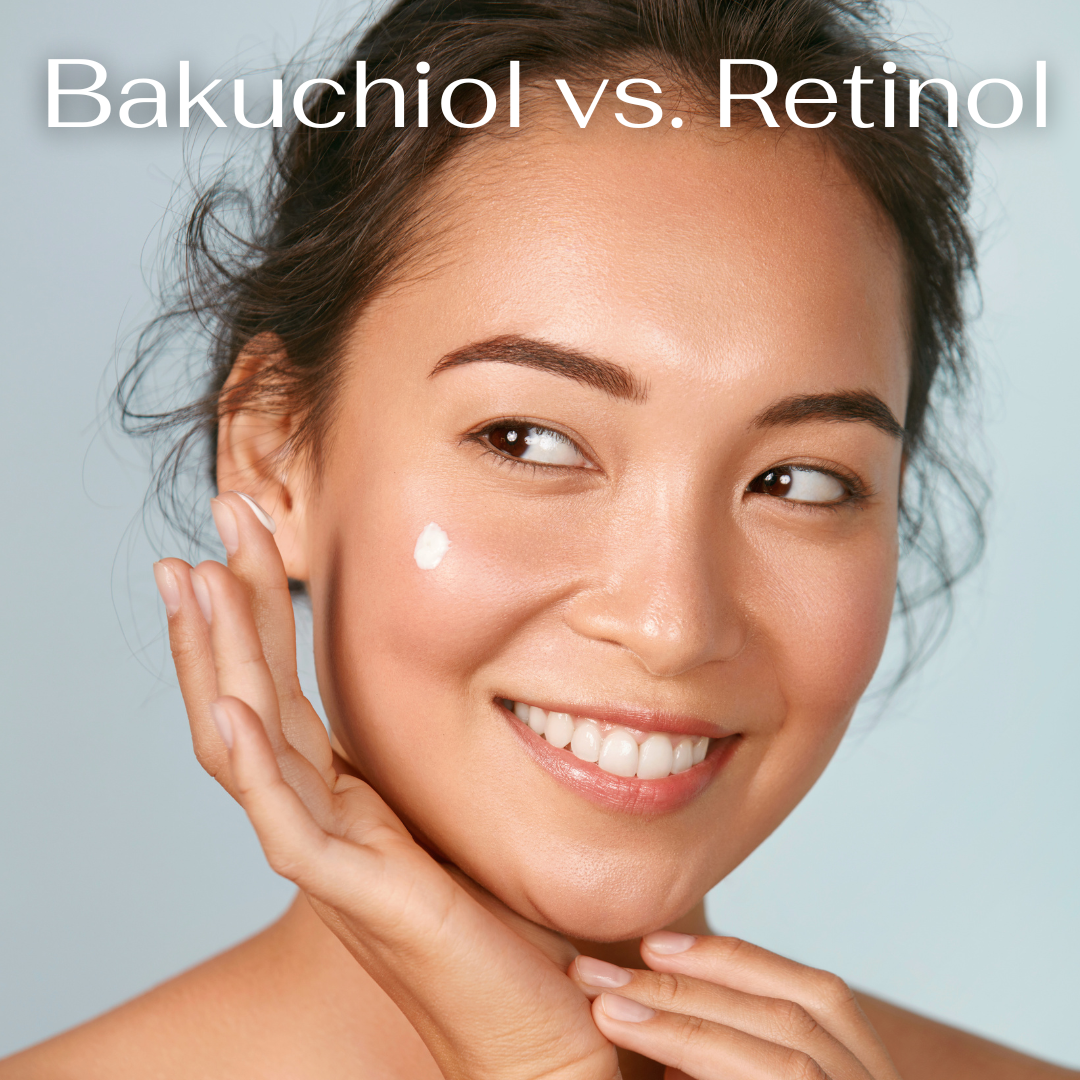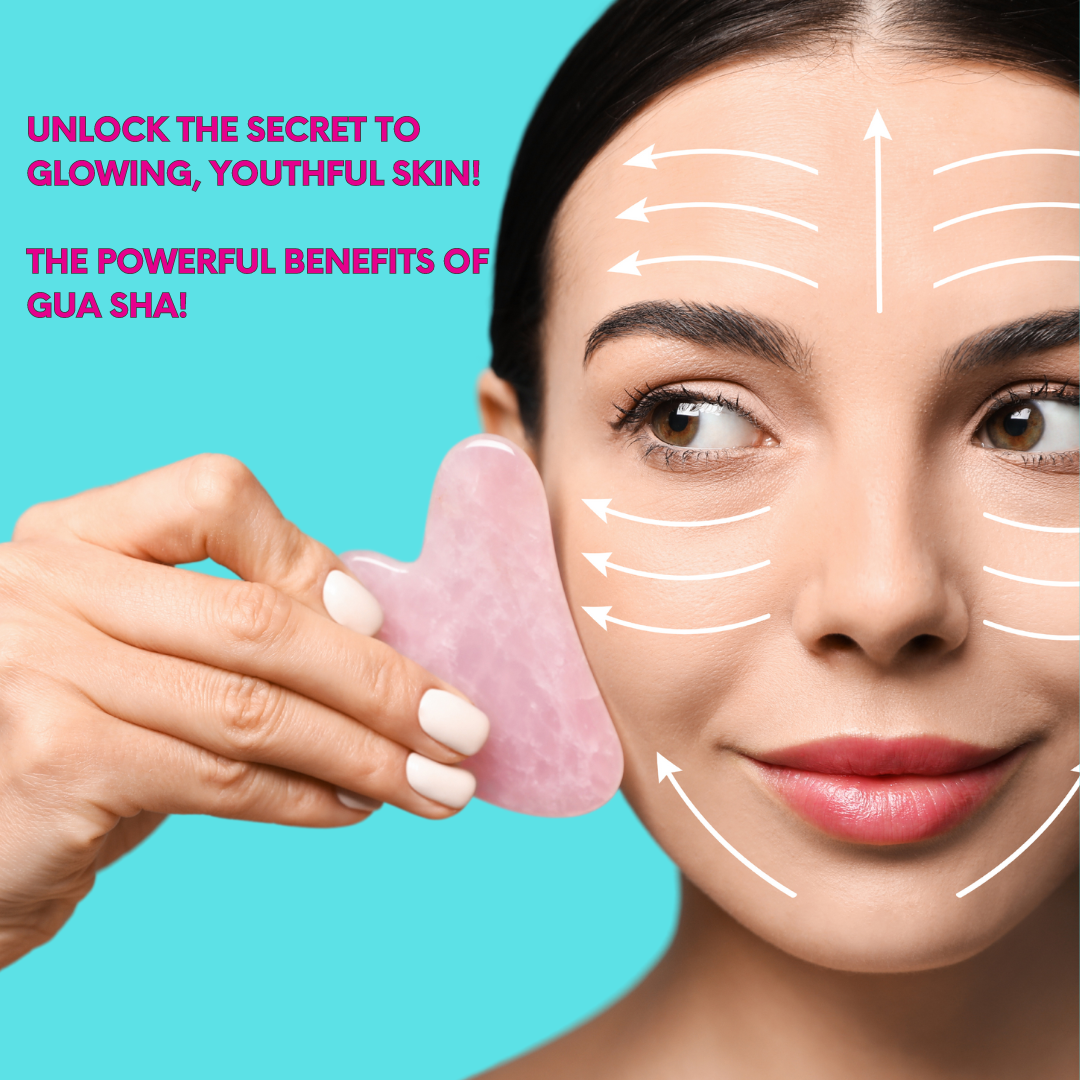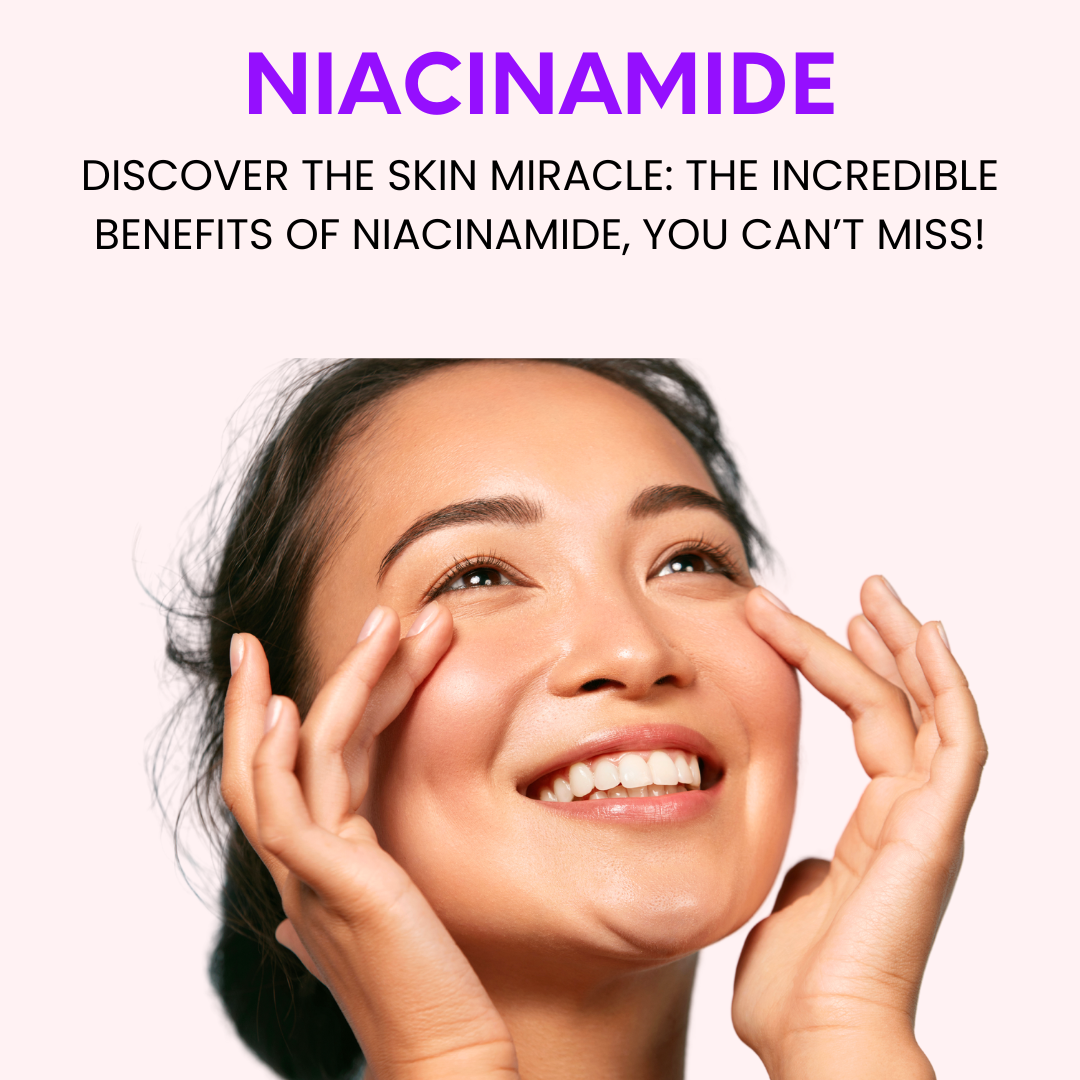
Retinol and Bakuchiol: The Differences, Benefits, and Glowing Results
Bakuchiol VS Retinol. Understanding their Powerful Skin Benefits.
In the ever-evolving world of skincare, ingredients that promise youthful, radiant skin are highly sought after. Among these, retinol has long been hailed as a gold standard in anti-aging treatments. However, a natural alternative, bakuchiol, has recently gained attention for its similar benefits without some of the drawbacks associated with retinol. This comprehensive article explores the benefits, differences, and applications of bakuchiol and retinol in skincare, offering an expert perspective on these two powerful ingredients.
Understanding Retinol
What is Retinol?
Retinol is a derivative of vitamin A and a member of the retinoid family. It is a well-researched and widely used ingredient in skincare for its ability to promote cell turnover, enhance collagen production, and improve overall skin texture and tone. Retinol is available in various forms, including over-the-counter products and prescription-strength formulations.
Benefits of Retinol
Anti-Aging
Retinol is renowned for its anti-aging properties. It stimulates collagen production, which helps reduce the appearance of fine lines and wrinkles. By promoting cell turnover, retinol also improves skin texture and elasticity, resulting in firmer, more youthful-looking skin.
Acne Treatment
Retinol is effective in treating acne by unclogging pores, reducing the formation of comedones, and preventing future breakouts. Its exfoliating properties help remove dead skin cells, reducing the occurrence of clogged pores and acne lesions.
Hyperpigmentation Reduction
Retinol can help fade hyperpigmentation, including age spots, sun spots, and post-inflammatory hyperpigmentation. By accelerating cell turnover, it promotes the shedding of pigmented cells and the emergence of new, evenly toned skin.
Improved Skin Texture
Regular use of retinol can significantly improve skin texture by smoothing rough patches and reducing the appearance of enlarged pores. This results in a more refined and even complexion.
Potential Drawbacks of Retinol
Irritation and Sensitivity
One of the primary concerns with retinol is its potential to cause irritation and sensitivity, especially for those with sensitive or dry skin. Common side effects include redness, peeling, and dryness, which can be uncomfortable and discouraging for some users.
Photosensitivity
Retinol increases the skin's sensitivity to the sun, making it more prone to sunburn and damage. It is essential to use sunscreen daily when incorporating retinol into your skincare routine to protect your skin from harmful UV rays.
Understanding Bakuchiol
What is Bakuchiol?
Bakuchiol is a plant-based compound extracted from the seeds and leaves of the Psoralea corylifolia plant, commonly known as babchi. It has been used in traditional Ayurvedic and Chinese medicine for centuries to treat various skin conditions. In recent years, bakuchiol has gained popularity in the skincare industry as a natural alternative to retinol.
Benefits of Bakuchiol
Anti-Aging
Like retinol, bakuchiol has been shown to stimulate collagen production and promote cell turnover, leading to a reduction in fine lines and wrinkles. Studies have demonstrated that bakuchiol can significantly improve skin firmness and elasticity, resulting in a more youthful appearance.
Acne Treatment
Bakuchiol possesses antibacterial and anti-inflammatory properties, making it effective in treating acne. It helps reduce the formation of acne lesions, prevents clogged pores, and calms inflamed skin, resulting in a clearer complexion.
Hyperpigmentation Reduction
Bakuchiol can help fade hyperpigmentation and even out skin tone. Its ability to inhibit melanin synthesis helps reduce the appearance of dark spots and pigmentation irregularities, promoting a brighter and more uniform complexion.
Antioxidant Protection
Bakuchiol is rich in antioxidants, which protect the skin from oxidative stress and free radical damage. This helps prevent premature aging and supports overall skin health.
Advantages of Bakuchiol over Retinol
Gentler on the Skin
One of the most significant advantages of bakuchiol is its gentler nature compared to retinol. Bakuchiol is less likely to cause irritation, redness, or peeling, making it suitable for all skin types, including sensitive and dry skin.
No Photosensitivity
Unlike retinol, bakuchiol does not increase the skin's sensitivity to the sun. This makes it a safer option for daytime use and reduces the risk of sunburn and photodamage when exposed to sunlight. The best skincare product loaded with
Comparing Bakuchiol and Retinol
Efficacy
Both bakuchiol and retinol offer impressive anti-aging, acne-fighting, and hyperpigmentation-reducing benefits. However, the efficacy of each ingredient can vary depending on individual skin types and concerns.
Retinol
Retinol is a well-established ingredient with a robust body of scientific research supporting its efficacy. It is often considered more potent than bakuchiol, especially in higher concentrations and prescription formulations. Retinol is particularly effective for those with mature skin seeking significant anti-aging benefits.
Bakuchiol
Bakuchiol is a promising alternative for individuals who cannot tolerate retinol due to its potential side effects. While it may be slightly less potent than retinol, studies have shown that bakuchiol can provide comparable results in improving skin firmness, reducing wrinkles, and treating acne. Bakuchiol is suitable for all skin types, including sensitive and reactive skin. My favorite product loaded with Bakuchiol is Clear 6 Serum!
Tolerance and Side Effects
Retinol
Retinol can cause initial irritation, redness, and peeling, especially when first introduced into a skincare routine. It requires a gradual introduction and may involve a period of adjustment as the skin builds tolerance. Retinol's photosensitivity also necessitates diligent sun protection.
Bakuchiol
Bakuchiol is generally well-tolerated and does not cause the same level of irritation or sensitivity as retinol. It can be used both day and night without the risk of photosensitivity, making it a more flexible option for various skincare routines.
Usage and Application
Retinol
- Concentration: Retinol products come in various concentrations, typically ranging from 0.25% to 1%. It is advisable to start with a lower concentration and gradually increase as the skin adapts.
- Application: Retinol is best applied at night due to its photosensitizing effects. It should be used after cleansing and before moisturizing. Begin with a few nights per week and increase frequency as tolerated.
- Sun Protection: Always use sunscreen during the day when using retinol at night to protect the skin from UV damage.
Bakuchiol
- Concentration: Bakuchiol products typically range from 0.5% to 2%. It is gentle enough to be used at higher concentrations without causing irritation.
- Application: Bakuchiol can be used both day and night. Apply it after cleansing and before moisturizing. It can be used daily from the start, making it easier to incorporate into a skincare routine.
- Sun Protection: While bakuchiol does not increase photosensitivity, using sunscreen daily is still recommended to protect the skin from UV rays.
Integrating Bakuchiol and Retinol into Your Skincare Routine
Using Retinol
- Start Slow: Begin with a low concentration of retinol and use it a few times a week to allow your skin to adjust.
- Nighttime Use: Apply retinol at night after cleansing and before moisturizing.
- Moisturize: Follow with a hydrating moisturizer to minimize potential dryness and irritation.
- Sun Protection: Use a broad-spectrum sunscreen during the day to protect your skin from UV damage.
Using Bakuchiol
- Daily Use: Bakuchiol can be used daily from the start, both morning and night.
- Layering: Apply bakuchiol after cleansing and before moisturizing.
- Combination: Bakuchiol can be used in combination with other active ingredients, such as vitamin C or hyaluronic acid, without risk of irritation.
- Sun Protection: While not required for bakuchiol, daily sunscreen use is still recommended for overall skin health.
Combining Bakuchiol and Retinol
For those seeking the benefits of both ingredients, combining bakuchiol and retinol can be an effective approach. Here are some tips for integrating both into your routine:
- Alternate Nights: Use retinol on certain nights and bakuchiol on others to balance efficacy and minimize potential irritation.
- Layering: Apply bakuchiol in the morning and retinol at night. This allows you to benefit from both ingredients without overloading your skin.
- Hydration: Ensure your skincare routine includes hydrating and soothing products to support your skin's barrier function and reduce the risk of dryness or irritation.
Conclusion
Both bakuchiol and retinol are powerful skincare ingredients with impressive benefits for anti-aging, acne treatment, and overall skin health. Retinol remains a gold standard for its proven efficacy, particularly in more mature or resilient skin types. However, bakuchiol offers a gentler, natural alternative that provides comparable benefits without the risk of irritation or photosensitivity. My absolute favorite product with Bakuchiol is : Clear 6 Serum
By understanding the unique properties and applications of these ingredients, you can make an informed decision about which is best suited to your skincare needs. Whether you choose retinol, bakuchiol, or a combination of both, integrating these powerful ingredients into your routine can help you achieve a radiant, youthful complexion.




Leave a comment
This site is protected by hCaptcha and the hCaptcha Privacy Policy and Terms of Service apply.